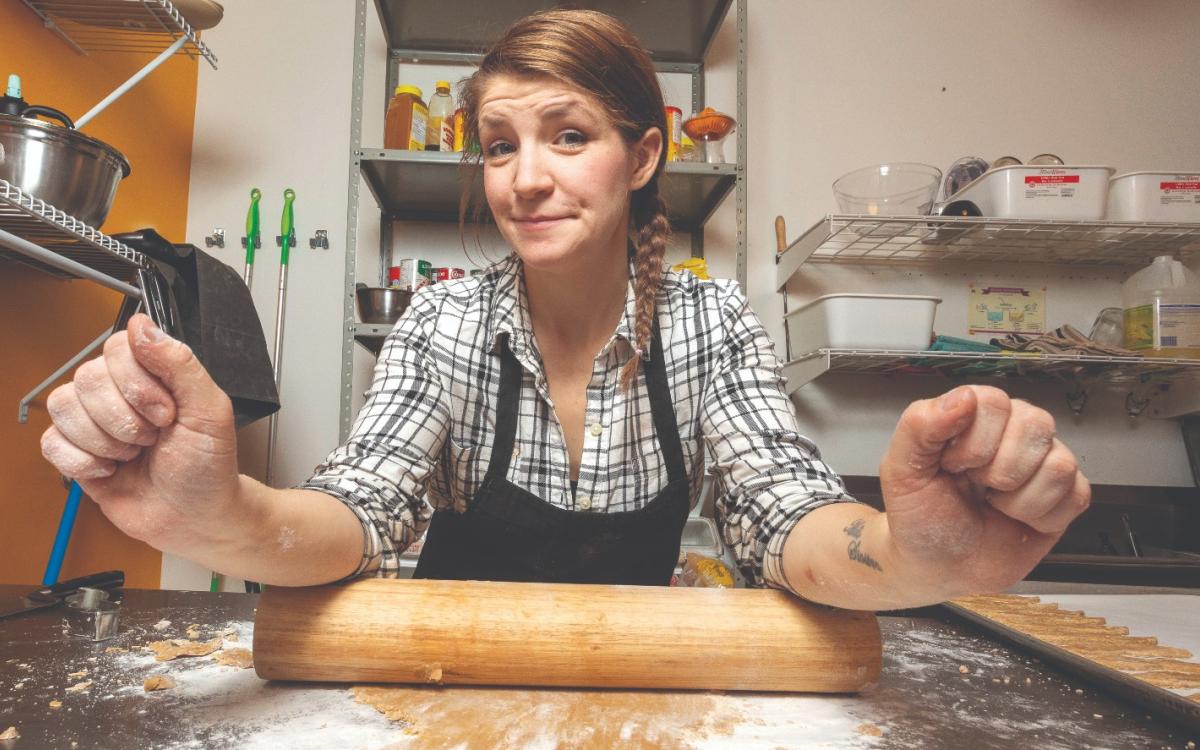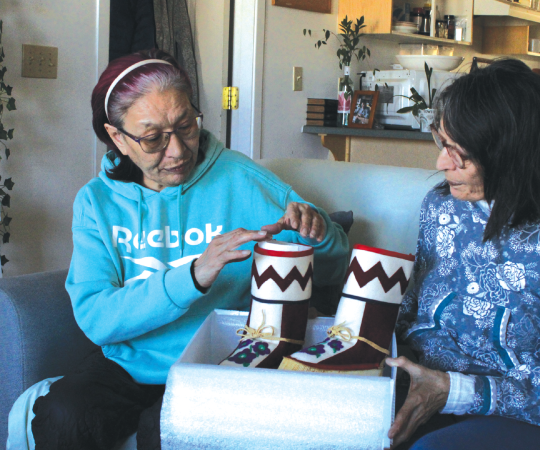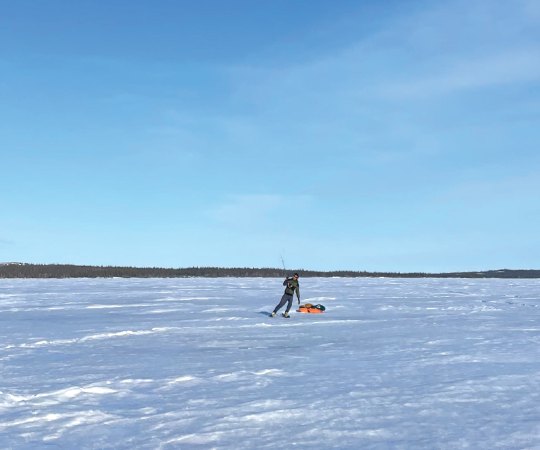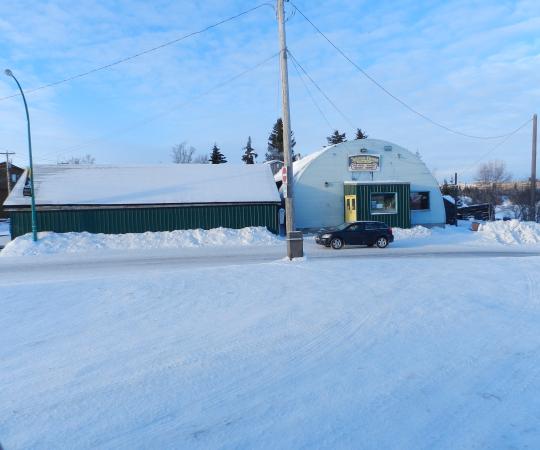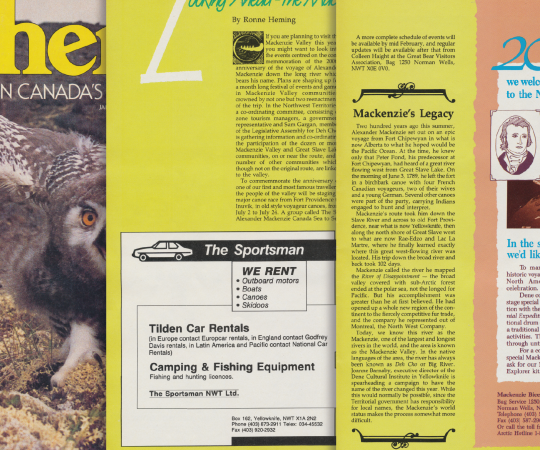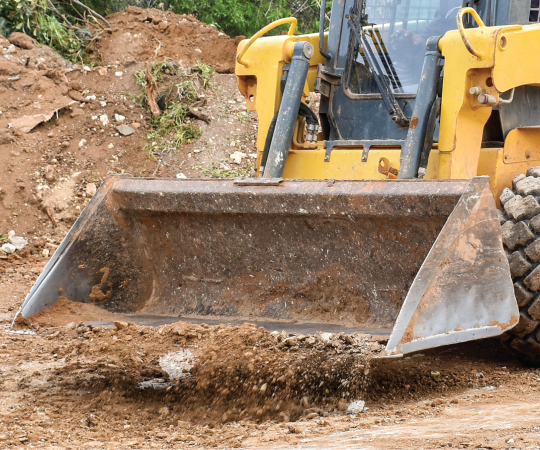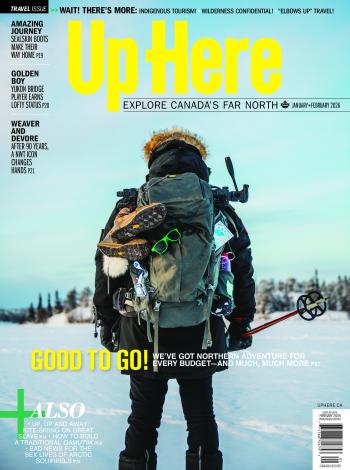A candy company with a concern for community health and wellness?
Kaitlyn White-Keyes is aware the sugary confections she serves up to Yellowknifers seem at odds with her goal of educating Northerners about healthy living. But dig a little deeper and her vision begins to make sense.
“It sounds crazy to say when you’re feeding them candy, but I wanted to teach [people] about nutrition and about the connection with food—where it really comes from, and who’s really making it.”
As a trained chef, the longtime Yellowknifer finds the growing disconnect between consumers and the food they eat troubling. People simply grab an item off the grocery store shelf without considering what went into creating it. Finding a way to engage with her community on this issue has become a mission for the 27-year-old.
Enter the Ever Sweet Company: a grassroots confectionary with a radical consciousness.
As entrepreneurial endeavours often do, it all started in White-Keyes’ own home, where she lives with her husband and two young children. Eager to get back in the kitchen after graduating from a culinary program at the Northern Alberta Institute of Technology, she started whipping up maple lollies and caramel sauces for a keen group of family and friends. Encouraged by their rave reviews, she hit the city’s Old Town Ramble and Ride—sweets in tow—to expand her market last sum.mer. From there, White-Keyes ran with it, building her customer base and launching a website to take orders.
The company’s menu is as diverse and ever-changing as it is sweet. Maple-caramel popcorn and s'mores with homemade graham crackers and fair-trade certified chocolate are staples. But every season brings new concoctions. Chocolate witch brooms and maple-flavoured ghouls at Halloween. Strawberry sufganiyot to celebrate Hanukkah. Candied cajun nuts, chocolate pretzels, truffles—it goes on.
Ironically, the confectioner doesn’t have much of a sweet tooth herself. “I don’t eat as much as I make, that’s for sure,” she admits. But candy has mass appeal, and that makes it easier to get people on board with her message: being mindful of place and context when it comes to food.
It’s a practice White-Keyes, who proudly identifies as Métis, incorporates into her recipes. Take her pastilles, for example. She rotates the flavours of these gummies based on what can be harvested in the area. She’s used locally-grown rhubarb in the past, which thrives in Yellowknife gardens. She’s already making plans to try using blueberries, Labrador tea leaves, or even spruce gum—all items found in the North. Anything she can’t make herself, like refined sugars or flour, she buys in town.
“When you break it down and start doing locally harvested and sourced things, and you’re actually eating from your own environment, you’re eating indigenously,” she says. “I think that’s the kind of connection we need to remake with the things that we’re putting in our body.”
The COVID-19 pandemic has limited White-Keyes ability to interact with customers face-to-face, but she eventually hopes to involve customers in the process by bringing them out to forage ingredients, then inviting them into the kitchen, where she'll teach them to make candies with what they harvest.
Community and philanthropy still form the crux of White-Keyes vision, built into the very fibres of her business model. She bakes moustache-shaped cookies during “Movember,” a month-long campaign to de-stigmatize men’s health, and donates proceeds to the cause. Throughout the winter, she leads a clothing drive to ensure people experiencing homelessness in Yellowknife have coats, hats, and gloves to keep warm.
The project White-Keyes is most passionate about is building an Indigenous-led, land-based treatment centre in the North.
White-Keyes tears up when talking about it. The subject resonates with her strongly, having lost friends to substance abuse in high school and seeing the impact it continues to have on Northern and Indigenous communities. That’s why she started a non-profit called the Northern Territory Addictions Facility Fund, to which she contributes a portion of every sale. It’s Ever Sweet’s raison d’être.
Right now, there are no facility-based options for addictions treatment in the Northwest Territories, so residents have to head south to access these services. Facilities are desperately needed here, White-Keyes feels, especially ones rooted in Indigenous values and teachings.
“We need a way to process colonialism, and a way for our people to really reconnect with one another and the land,” she says. “This is what I’m focused on and passionate about. Sweet treats are just an easy way to make that happen.”
And White-Keyes is making it happen.
The candy-maker was accepted into the 2021-2022 EntrepreNorth program, an incubator that supports Indigenous entrepreneurs to grow their businesses. She’s searching for a storefront where she can sell her goods, connect with customers face-to-face, and cultivate a joyous place for people to share in their love of treats.
“Giving back to people and giving back to my community is, I think, why we’re here,” she says. “I don’t know how else to give life that magnitude of meaning, other than making it better for the next generation.”
Ever Sweet Company is proof that when you help others, a treat can taste even sweeter.

